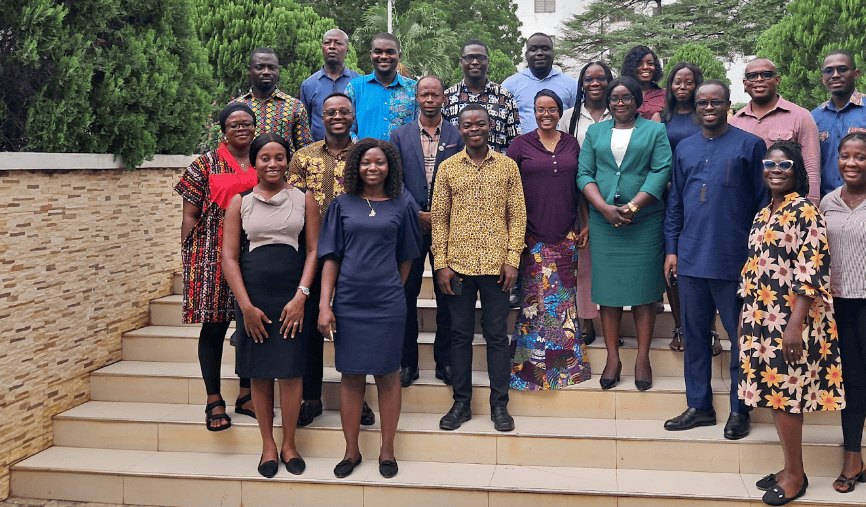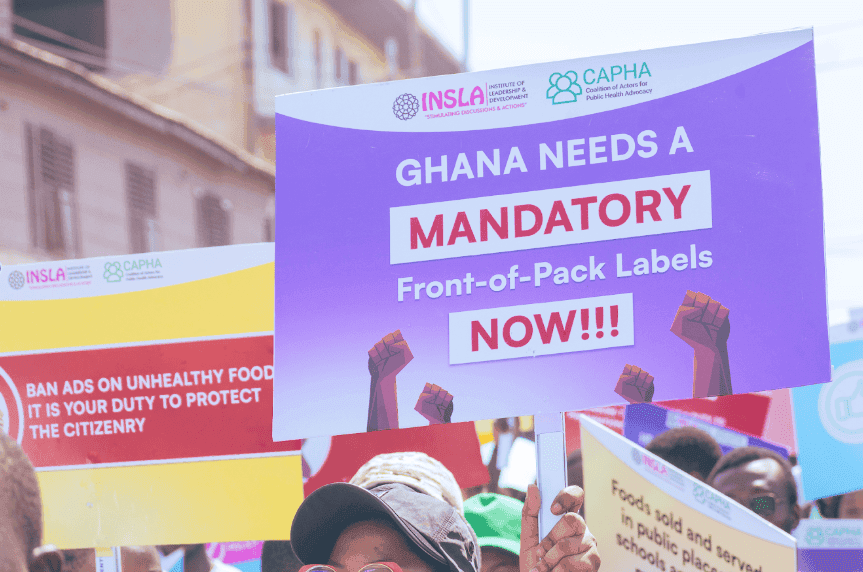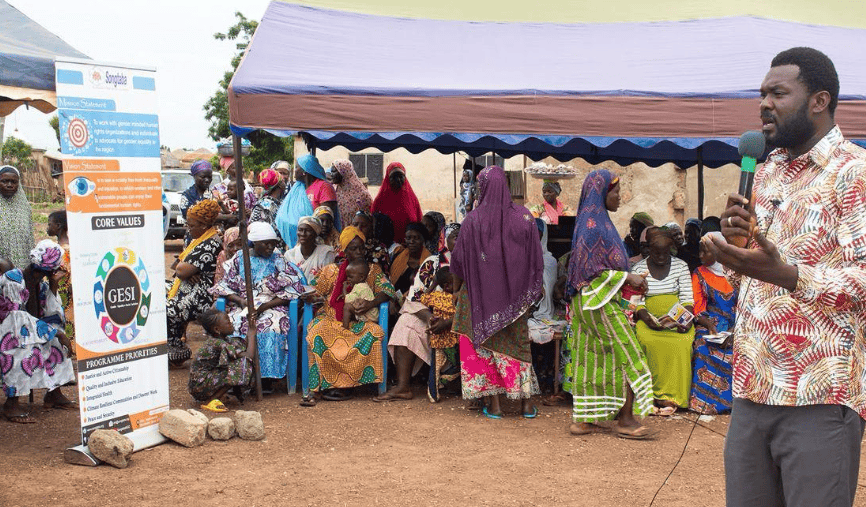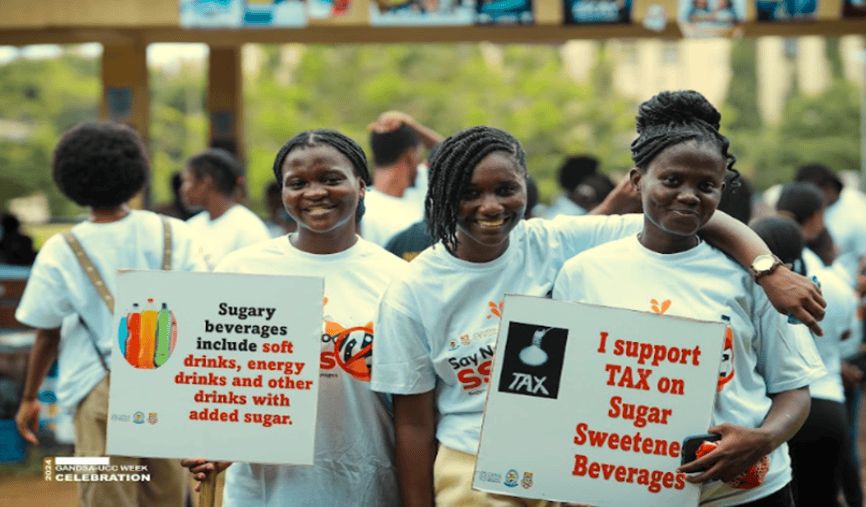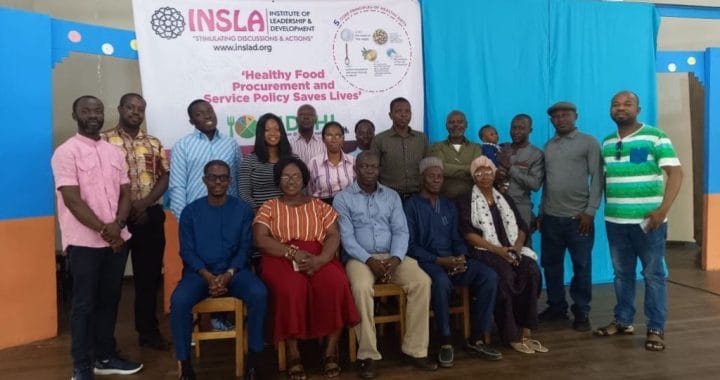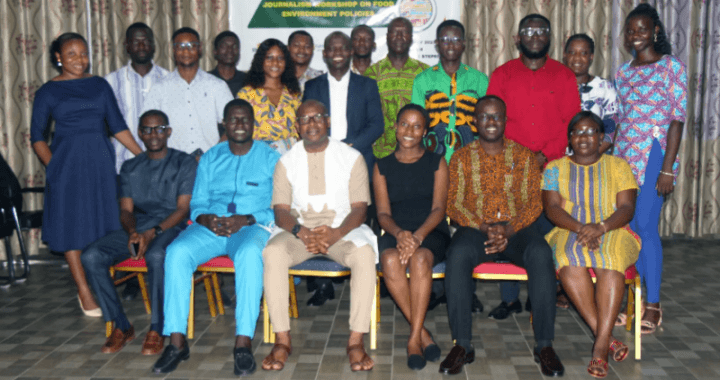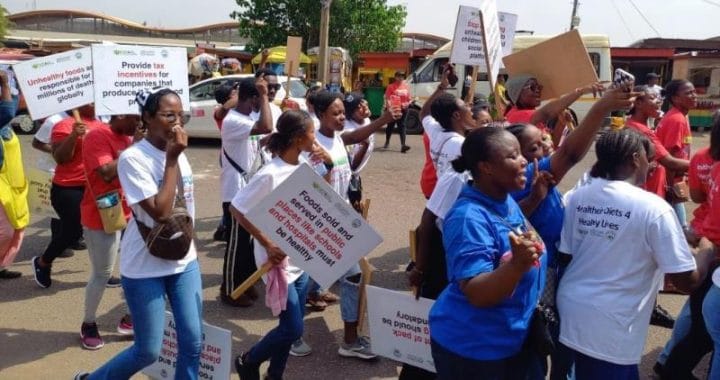On November 6, 2024, the Coalition of Actors for Public Health Advocacy (CAPHA), as part of the Healthier Diets for Healthy Lives (HD4HL) project, held a capacity-building workshop at the Institute of Statistical, Social and Economic Research (ISSER), University of Ghana. The workshop aimed to strengthen the capacity of CAPHA’s coalition members, representatives from the HD4HL project partners (Ministry of Health, and the National Development Planning Commission (NDPC), Food and Drugs Authority and Univeristy of Ghana.
The workshop began with welcome remarks from Dr. Kasim Abdulai, Executive Director of Operations at CAPHA. He emphasized the importance of embedding gender considerations into advocacy efforts aimed at promoting healthier food environments.
Ms. Annabel Gyening, the coordinator for the HD4HL re-introduced the HD4HL project, giving a status update on the implementaion of the project. She indicated that the development of the food-based policies, underpinned by Ghana nutrient profiling model, which was the main objective fo the HD4HL project was near completion and urged all present to increase its advocacy towards the implementation of the policies.
Following her presentation, Professor Nana Akua Anyidoho—Social Policy Researcher at ISSER and gender expert for the HD4HL project—delivered a compelling address on the importance of integrating gender perspectives into food policy advocacy. She underscored how gender dynamics shape life outcomes and emphasized the need to reflect these realities in both the design and implementation of policy.
Professor Anyidoho urged advocates to critically examine the form and content of their messaging. She posed a series of thought-provoking questions: What kinds of messages about food environment policies resonate with men and women, boys and girls? Do these messages challenge or reinforce existing gender norms, roles, and ideologies that sustain inequality? Are both genders fairly represented in the images and language used? Is the tone of the messaging respectful and inclusive of all genders? She also highlighted the importance of delivery: Are the chosen communication channels effective in reaching different gender groups? What impact is intended, and how might the form of advocacy influence men and women differently? Crucially, she called attention to the possibility of unintended consequences could certain strategies inadvertently reinforce stereotypes or exacerbate gender inequality? Her remarks served as a powerful reminder that effective food policy advocacy must go beyond content to consider who is reached, how, and with what implications for gender equity.
Mr. Labram Musah, National Coordinator of the Ghana NCD Alliance, followed with a presentation on media and advocacy strategies. He outlined tactics used by the food industry to shape public opinion and emphasized the role of strategic communication in countering misinformation. He encouraged media professionals to leverage their platforms to amplify health-promoting messages.
In his closing remarks, Dr. Kasim Abdulai urged all participants to take ownership of the advocacy efforts and work collectively to advance the HD4HL food policy agenda. He reinforced the critical role of CSOs, academia, policymakers, and media in driving sustainable and equitable food systems change.

